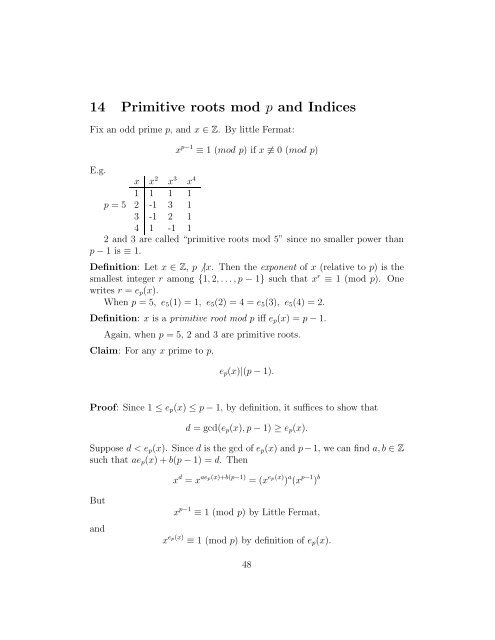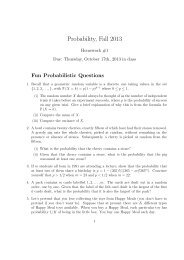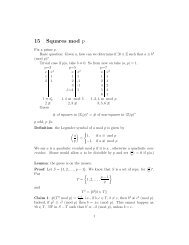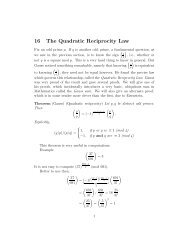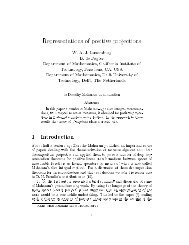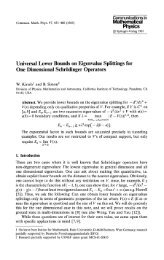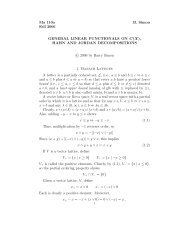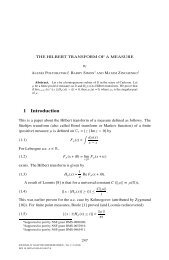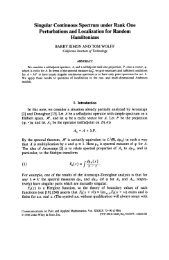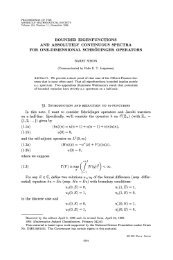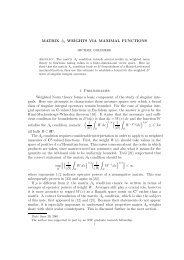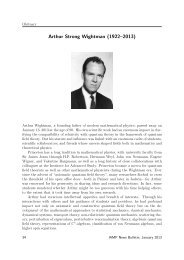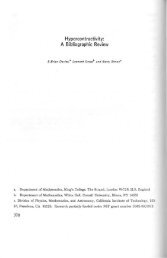1 Basic Notions - Caltech Mathematics Department
1 Basic Notions - Caltech Mathematics Department
1 Basic Notions - Caltech Mathematics Department
You also want an ePaper? Increase the reach of your titles
YUMPU automatically turns print PDFs into web optimized ePapers that Google loves.
14 Primitive roots mod p and Indices<br />
Fix an odd prime p, andx ∈ Z. By little Fermat:<br />
E.g.<br />
p =5<br />
x x 2 x 3 x 4<br />
1 1 1 1<br />
2 -1 3 1<br />
3 -1 2 1<br />
4 1 -1 1<br />
x p−1 ≡ 1(mod p) ifx ≡ 0(mod p)<br />
2 and 3 are called “primitive roots mod 5” since no smaller power than<br />
p − 1is≡ 1.<br />
Definition: Letx∈Z, p |x. Then the exponent of x (relative to p) isthe<br />
smallest integer r among {1, 2,...,p− 1} such that xr ≡ 1(modp). One<br />
writes r = ep(x).<br />
When p =5, e5(1) = 1, e5(2) = 4 = e5(3), e5(4) = 2.<br />
Definition: x is a primitive root mod p iff ep(x) =p − 1.<br />
Again, when p = 5, 2 and 3 are primitive roots.<br />
Claim: For any x prime to p,<br />
ep(x)|(p − 1).<br />
Proof: Since1≤ ep(x) ≤ p − 1, by definition, it suffices to show that<br />
d =gcd(ep(x),p− 1) ≥ ep(x).<br />
Suppose d


